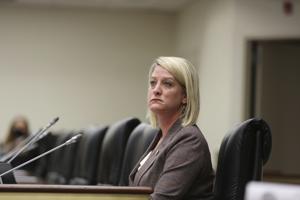South Carolina panel fields calls to widen access to non-vaccine COVID treatments

(The Center Square) – South Carolina is not using its resources to make COVID-19 antibody treatments more available while public health officials and the health care industry are stymying “medical freedom” by making access to non-vaccine alternates difficult, speakers told a Senate panel.
The Senate Medical Affairs Subcommittee fielded four hours of testimony from 22 people this week, including two Republican lawmakers, who advocated for more monoclonal antibody treatment sites and called on lawmakers to lift obstacles to using azithromycin, ivermectin and hydroxychloroquin to treat COVID-19.
Medical professionals said the three drugs have modest or benign benefit in fighting COVID-19 and ivermectin, in particular, is dangerous, citing reports nationwide of life-threatening complications after people used larger doses designed for livestock.
Rep. Stewart Jones, R-Laurens, called on the panel to investigate the U.S. Centers for Disease Control & Prevention, the South Carolina Department of Health and Environmental Control (SCDHEC) and municipal agencies for preventing people from accessing alternate treatments to vaccines.
“We don’t have a law in South Carolina stopping doctors from (prescribing the drugs), but I think what we’re seeing is a top-down approach that’s causing people to die. it’s causing people not to get treatment early on,” Jones said, noting several doctors in his district said they would prescribe the drugs if requested by a patient but are under pressure from hospitals and medical licensing boards to not do so.
“Why is the CDC, why is DHEC deterring doctors from helping patients every possible way that they can?” he asked.
Rep. Ashley Trantham, R-Greenville, said her mother received azithromycin, an antibiotic for bacterial infections, to help recover from COVID-19. When her father fell sick with the disease and requested azithromycin, a prescription for the antibiotic was difficult to get.
Trantham said when another family contracted COVID-19, he asked for monoclonal antibodies, but his doctor hadn’t heard of it and couldn’t find a physician for a referral.
“We are not utilizing all our resources,” Trentham said. “We are ignoring the therapeutic options because we are so focused on the vaccine.”
Gov. Henry McMaster announced Sept. 10 that this office was working to expand access to monoclonal antibody treatments.
“Beyond a shadow of a doubt, the most effective way to protect ourselves and our loved ones from COVID-19 is to make the decision to get vaccinated,” McMaster said in a statement last week. “We’ve also seen that the use of these antibody treatments can greatly reduce the risk of hospitalization and severe illness in those who test positive.”
More than 50 South Carolina health care providers offer the treatments for at-risk individuals age 12 and older with mild-to-moderate symptoms. More than 16,000 South Carolinians had undergone the treatments as of Sept. 1, the SCDHEC said.
Senate Medical Affairs Subcommittee chair Sen. Danny Verdin, R-Laurens, said Wednesday’s meeting was not designed to develop specific legislative proposals for the 2022 legislative session, which begins Jan. 11, but to serve as a “pulpit.”
Sen. Mia McLeod, D-Richland, noted medical professionals were conspicuously absent among those who testified Wednesday.
“I was just floored,” said McLeod, among the candidates seeking the 2022 Democratic gubernatorial nod. “All we heard from were people who have been staunchly opposed to masks and vaccinations and science and the advice of public health experts. Those are the ones we gave four hours of our time today. To give the minority an audience like we did today, we just should have heard from the medical experts first.”
Medical professionals and organizations, however, will get their day when the Senate Medical Affairs Subcommittee next convenes Sept. 22.
Disclaimer: This content is distributed by The Center Square

